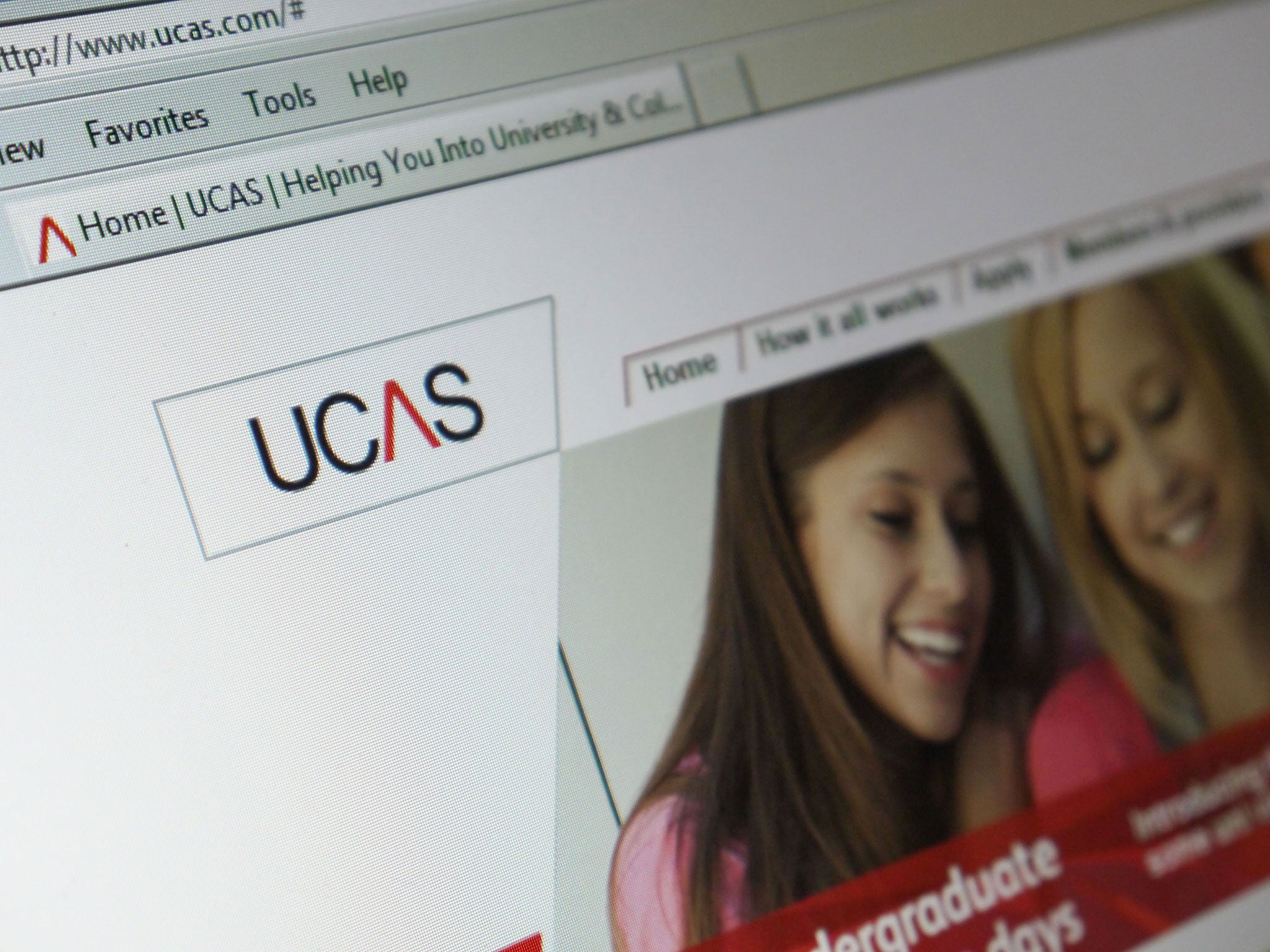Clearing 2015: Don't just accept the first offer you get, study your options
A-level results not quite what you were expecting? There is a solution – which one in 10 students took last year

Life doesn't always go according to plan, and that's why the gods invented Clearing, the Ucas system that matches students with course vacancies. Once famed for being a high stakes scramble for last minute places, Clearing is increasingly just another route into higher education.
Last year it accounted for almost one in 10 admissions: that's over 61,000 students. With growing numbers of Russell Group universities listing vacancies, this is no last chance saloon but instead a valid way to snap up great courses at top institutions. And this year the lifting of the student number cap means it’s an applicants' market.
"The universities want you as much as you want them,” says Susie King, head of admissions at the University of Bedfordshire. “They don’t hold all the power so take your time and work out what is right for you – after all, this represents at least £27,000 of loans and three years of your life."

For many students the big reveal of the A-level results can be a time of shock and upset. That’s OK – have a cry and a cup of tea – but then it’s time to move on. If you’re only slightly short of the required grades, ring your first choice: they may still accept you, in which case, job done. If not, and you’ve discounted retakes or a gap year, get in front of a computer and have a phone to hand: you are now in Clearing.
This means it’s time to execute plan B. Ideally, those with an inkling that their exams have not gone as planned will already have scanned the clearing vacancies listed on Ucas to find other courses, institutions, or both. Lynn Grimes, director of student recruitment and admissions at London South Bank University, says: “don’t just go by the course title, make sure you understand the content of the course. There can be significant differences between courses with the same title while some universities use different titles for what is effectively the same course. It’s a big decision so don’t rush this.”
Jot down useful phone numbers, course codes, your Clearing number – which you can find on Track – your personal ID number as well as your GCSE and newly minted A-level results. Note points about your passion for your chosen subject and why you like this course in particular, and be ready to ask questions: about the course, the institution, student life, and what happens next.
Initially, you’ll speak to a member of the Clearing helpline team, and there may then be a phone interview with a lecturer. Make notes during this conversation; if you’re offered a verbal offer, express interest but don’t commit until you’ve had weigh options. Logistics permitting, try to visit the university: most actively encourage visits. “Half of coming to university is feeling comfortable in the place,” says Grimes.
Otherwise try speaking to current students, or check out forums such as The Student Room to get a feel for the place. Research living costs, sports facilities, opportunities for work placements or trips abroad. And ask about financials: what bursaries and scholarships are available, what textbooks are required, what student support is available.
“Don’t feel pressured into accepting the first offer you get,” advises Annie Dobson of the Exam Results Helpline. “There’s nothing worse than finding yourself somewhere you can’t settle.”
Found the perfect match? Add your Clearing choice on Track to confirm your acceptance, complete loan paperwork as soon as possible and sort out accommodation: many universities reserve places in halls for Clearing students. As Clearing veterans on the following pages attest, it all tends to work out for the best.
Case study: Emma James, 20, University of Staffordshire
Emma James entered Clearing after she missed the grades she needed for her first choice university. She’s now getting ready to start her third year studying journalism at Staffordshire University
“I was studying A-levels in psychology, English Literature and government and politics and an AS in PE, it was a bit of a mixed bag as I didn’t know what I wanted to do. It was only in Year 13 I decided I wanted to study journalism so I looked for courses that were accredited by the National Council for the Training of Journalists (NCTJ) and not too far from my home in Buckinghamshire. Bournemouth was my first choice, then Kent and then Staffordshire and I needed to get an ABB for my first choice.
But after the exams I just had a feeling that I wasn’t going to get that. I’ve never been very good at exams, I tend to panic and can’t remember things. Having lots of exams close together meant I really felt the pressure and I just knew I hadn’t done as well as I should have done. In fact the night before results day, I went on the Clearing website and drew up a shortlist of places with similar courses just in case. I also had a piece of paper with my GCSE results, Ucas code and other things I might need if I had to go into Clearing.
I was glad I did: I got BCC in my exams and just started crying when I picked up the results. I just felt so disappointed with myself and felt like I’d let myself and everybody down. I spoke to my teachers and they advised me to call my first choice and see if they would accept me but I felt they were quite rude on the phone: they said no straight away.
I spoke to my Mum, who had visited Bournemouth and Kent with me, and told her I couldn’t get in there and she said to just go with what feels best for me. So then I phoned around the other universities on my list: Nottingham Trent, Salford, De Montford and Staffordshire University. The latter had been my third choice anyway and I’d had an interview there, been accepted and knew what it was like. What really clinched it for me was how friendly Staffordshire was on the phone: the people were so supportive and understanding about how I was feeling, and they allowed me to speak to a lecturer who was in charge of the course. The lecturer was really nice about it, it was the same one who had interviewed me originally and seemed to remember me, which was a really nice feeling. By 3pm that day I had a place at Staffordshire confirmed and I was so relieved. After all the upset and panic in the morning, by the middle of the afternoon it was all sorted out.
Accommodation was easy: I got a place in halls, which meant I didn’t miss out on any of the student experience. The student loan was also easy to switch. I had to reapply as the fees were slightly different but it was easy to do. It really was a smooth process after all the initial upset.
Overall, I think Clearing is fantastic. It’s a really great system that gives you the opportunity to make changes as circumstances change. So much can change between applying to university and getting your results.
I’m really enjoying my course and I’ve got the same qualifications as if I’d been to any other university. They’ve helped me get some great work experience on the local newspaper, The Sentinel, and at the BBC in Salford, and all the lecturers still work in the industry, so they have great contacts and advice.
The most important thing is I’ve really enjoyed myself here, and I’ve also learnt to cope better with exams!”
Case study: Alexandra Hadaway, 19, University of Bournemouth
I was studying A-levels in English language, media and psychology and was predicted to get ABB, but I didn’t feel I would get that and I wasn’t even sure I wanted to go to university at all. At my grammar school it was programmed into us that we would go to university. None of my family had, so the expectation wasn’t coming from my side of things, but at school we didn’t look at any other options. I felt pressured into applying, even though I wasn’t sure it would be right for me. I applied to study English at Cardiff University, with Bournemouth as my second choice, but I didn’t put any effort into my studies. I sort of switched off. I wasn’t stressed about my exams because I didn’t put any pressure on myself.
I needed to get ABB to get into Cardiff but got BCC so I was surprised when I woke up on the morning of the results and found out I’d been accepted into Cardiff. By then I knew I really didn’t want to go to Cardiff. I’d visited Bournemouth in June, after my exams, and just felt I would be happier there. I felt more at home there. So I had to phone up Cardiff and ask them to release me from that place because I couldn’t apply to Bournemouth until I was released into the system.
It felt like I was waiting around all day: Bournemouth only had two spaces left on the course so I knew I couldn’t hang around too long. It was a really hectic and dramatic morning, panicking about what was happening, and it was all made worse by the fact I had a job as a receptionist – and was due to go on holiday the next day.
Mum pulled me out of work to see if we could get some advice from school in person, and on the way I finally heard that Cardiff had released me. The C learing lines only opened in the early evening and that night my place at Bournemouth still wasn’t guaranteed – and I’d be away the next day. Looking back, I hadn’t planned it well at all. It was only when I was about to get on the plane that my mum called to say Bournemouth had confirmed my place. I was so relieved and happy. All my friends had their places sorted and now it meant I could really enjoy my holiday too.
There was no problem with my loan but accommodation was a little more difficult. All the places in halls were full but there was a home finders day at the beginning of September, where they match you up with people with similar interests so you can find a house together. I really wanted to be in halls and fortunately I found a last minute space in halls – the irony is all my friends from the course live in private housing anyway so it wouldn’t have mattered either way.
The course has been great. It’s more media-based than the course in Cardiff, which was more focused on language, and the media side is where my interests lie. I’ve really enjoyed my first year. At the time, my dad couldn’t understand why I put so much extra pressure on myself by not taking the place at Cardiff but I just knew it wasn’t for me. My mum came to Freshers’ week and said straight away that she could see why I was so happy at Bournemouth. It was just the right fit for me. I felt happy and comfortable here in a way I just felt I wouldn’t be at Cardiff. Adjustment was a great opportunity to fix that. I’d definitely advise other people who feel they’ve made a mistake not to panic. There are other options and you get lots of support to help you make the right choice.”
Join our commenting forum
Join thought-provoking conversations, follow other Independent readers and see their replies
Comments
Bookmark popover
Removed from bookmarks